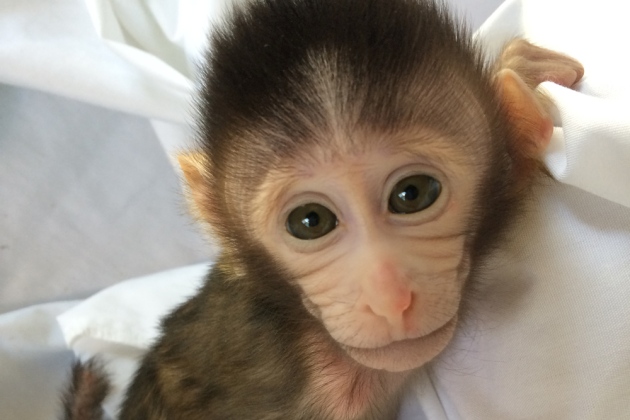My first class of the semester opened with the typical use of an icebreaker — tell us one controversial opinion that you have, which quickly digressed into a debate over the best TV series. But then, someone made a joke about the monkey lab at the University of Massachusetts. The professor promptly leapt over to the door, shut it, sighed and began to address everyone’s confusion.
My initial thought following this discussion (preceded by the very serious inquiry into how anyone could actually think that “Jersey Shore” is quality television) was that the lab’s secrecy is overall probably for the best. Of course, animal testing is bad and animal rights activism is usually good, but if the research really needs to be done, then it would be of the utmost importance for people to not be tampering with the laboratory and potentially endangering the animals or the researchers. My class discussed the monkeys’ potential aggression if any radical advocates or protesters were to attempt to release them. Besides, I wouldn’t want to find myself face-to-face with Curious George after he’s been in captivity for years. I’m guessing he might be a little less curious and a little more “I want to bite the next person I see.”
But then I began to do some research, out of my own curiosity, about the labs. Eerily, the “Great Wielder of Knowledge” — Google — reveals little about the secret monkey lab conspiracy at UMass. Only two relevant Google search results pop up, both related to the death of one of the monkeys, with an animal welfare group claiming “gross negligence” by the UMass researchers involved in the lab. Even spookier, the United States Department of Agriculture was ambiguous regarding the actual cause of death of the animal, citing “thermal injuries” following a surgery. And the USDA failed to even fine the University for its violation of the Animal Welfare Act, much to the dismay of animal rights advocates. One advocate even claimed to be filing a Freedom of Information Act request to gain more insight into the incident’s vagueness, though nothing seems to ever have been released to follow up on that endeavor.
Even more ambiguous are UMass’ official responses to these incidents and further questioning regarding the lab. University Director of Animal Care Services J. Paul Spurlock claimed, “we’re not trying to cover anything up or hide anything. We’re fully accessible,” but two years earlier, spokesperson Patrick Callahan stated, “We don’t have a comment on the primate research.” UMass spokesman Ed Blaguszewski conveyed in an earlier Massachusetts Daily Collegian article that more than one lab exists: “There are five other animal research facilities on campus, he added, but he also refused to name and locate them. He also refused to identify what other animals are contained in the buildings.”
Twitter and Reddit pages seem to convey the idea of a secret UMass conspiracy in regards to the lab, with posts under #UMassSecrets and larger threads as recent as three months ago on Reddit detailing various rumors about the location, the types of research and the animals kept in the “secret monkey lab(s).”
The explanation of the lab’s secrecy most often given is the threat of activist groups tampering with the animals, the lab or the researchers themselves, but it became more and more unclear as to what threats warrant such comprehensive layers of secrecy as I continued researching. Spokesperson Ed Blaguszewski spoke of the fear of “terrorist attacks” by activists, though admitted that no such acts have ever occurred on the UMass campus to date.
The most common word among Reddit and Twitter users was “sketchy,” and for good reason. The confidentiality of the labs seems to be enormously disproportionate to the present threats. It is entirely reasonable to keep the location of the labs classified for the potential hazards of the public reacting dangerously to the controversial ethics surrounding animal testing at the lab(s). However, the mystery and collusion surrounding the entire facility and its research is only detrimental to the researchers, the larger community and the reputation of the University as a whole. The ‘monkey is out of the bag’ regarding the practice of the research, so UMass has nothing to gain from the continued classified nature of the lab, but only the proliferation of rumors which make the whole operation seem “sketchy.”
If UMass were to open up conversation about the labs and disclose more information regarding the types of research and the animals themselves to the public, a healthy dialogue could take place without further endangering the reputation of the University or the researchers themselves. Perhaps animal rights activists would react more positively to an open and honest conversation instead of meeting dead ends and secrecy at every corner. Regardless of what ethical stance you hold about animal rights, secrecy is not the answer.
Isobel McCue is a Collegian columnist and can be reached at [email protected].




















No • Feb 1, 2018 at 2:33 am
This is a very ill-informed article. All the information about every lab on campus can be found online. Secrecy comes from wanting safety for the people that work on these animals to create advancements in medicine and improvements in human and animal life. It’s strange that you could not even use google to answer some of the questions you pose in this article. The daily collegian is really trash for letting something like this get posted.